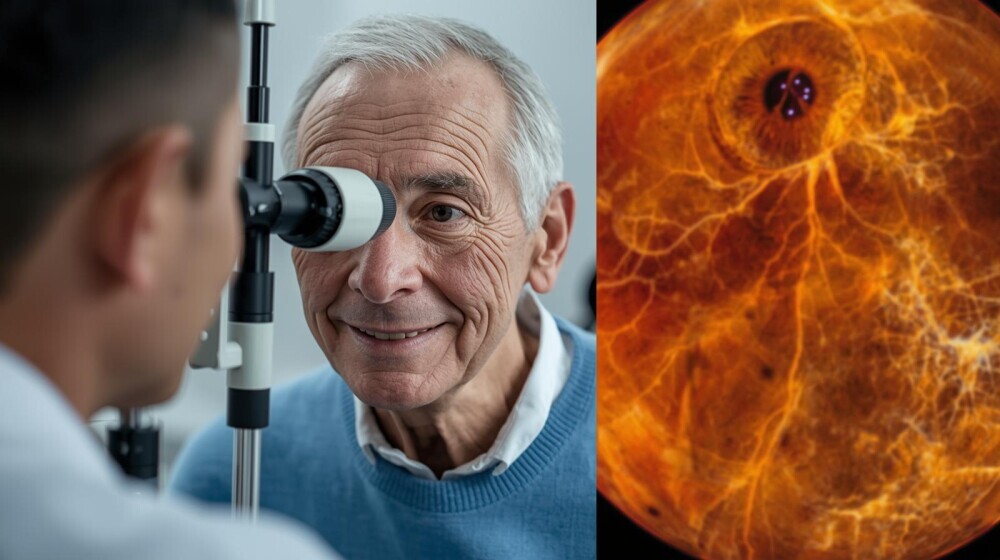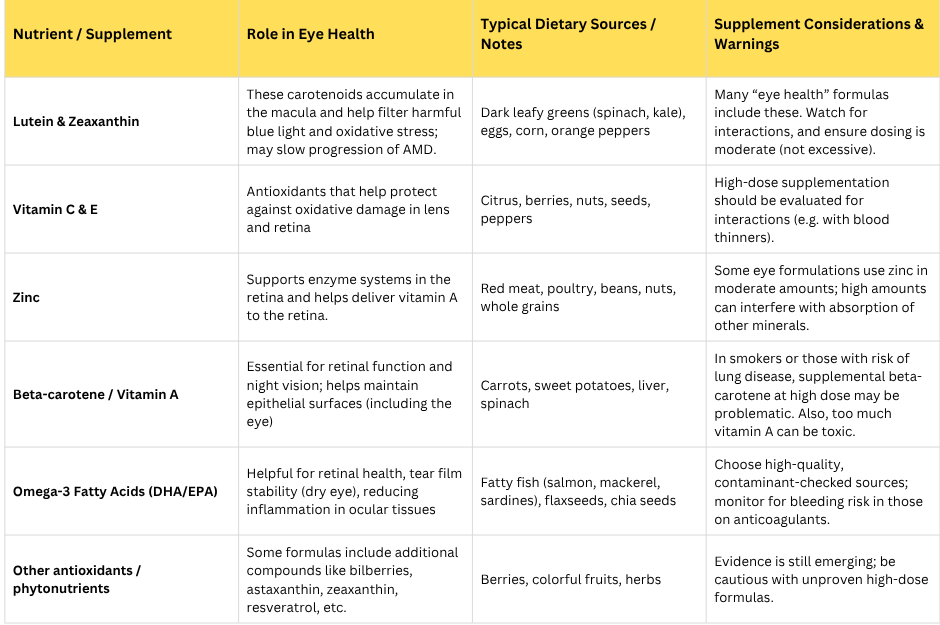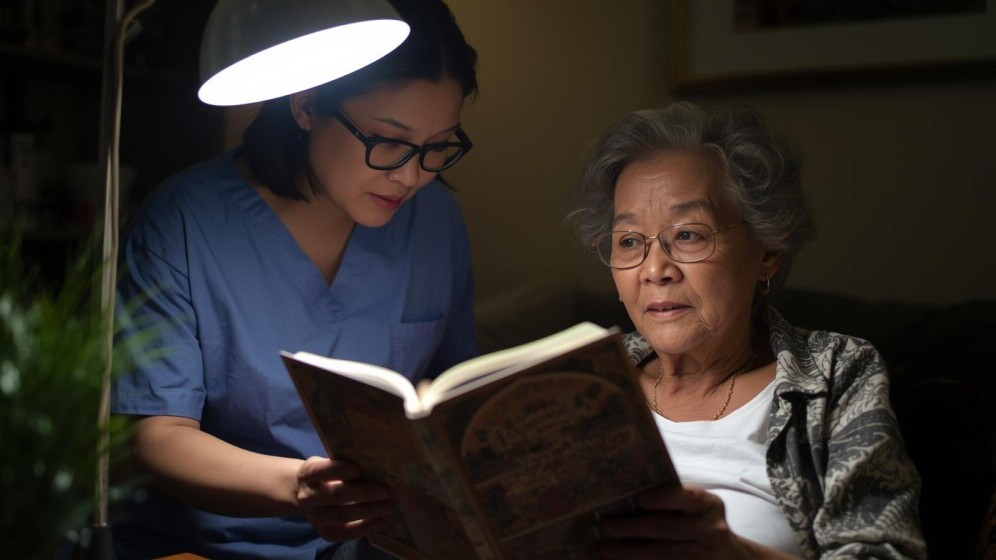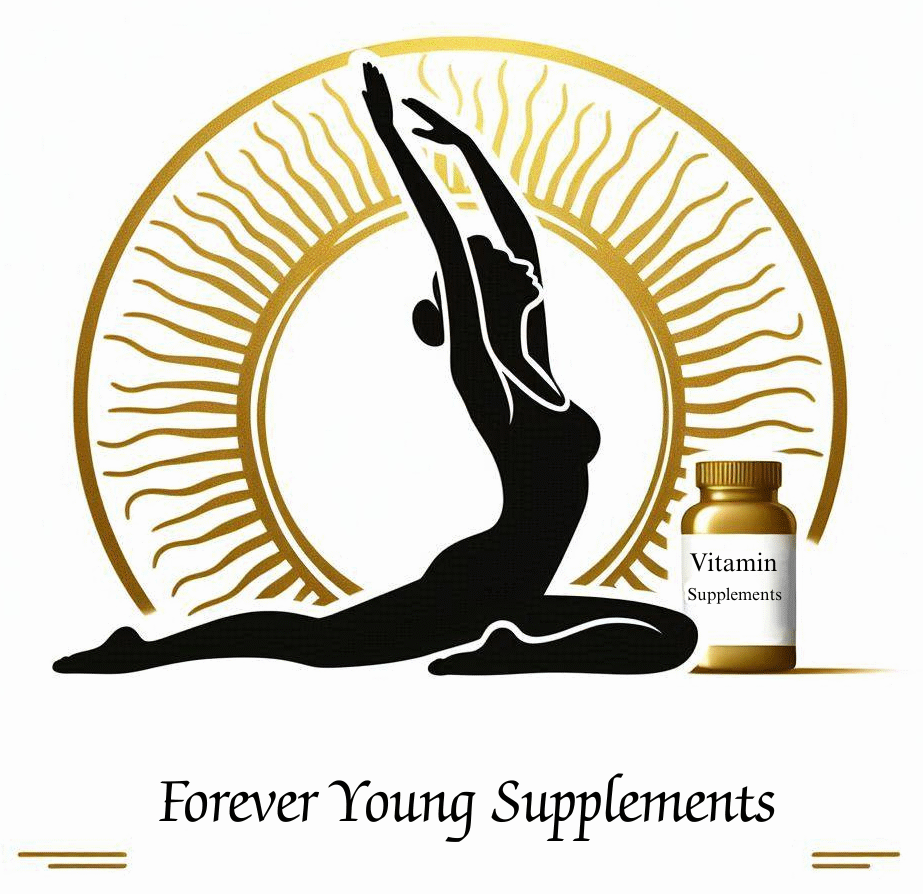Seeing the World Clearly at Every Age
Our eyes connect us to the people and places we love — from reading a grandchild’s message to admiring a sunset. As we grow older, keeping our vision clear becomes even more important for independence, safety, and quality of life.
Age brings changes to the eyes, but the good news is that many vision problems can be prevented or managed with healthy habits, regular checkups, and the right nutritional support.

How Aging Affects the Eyes
The eye is one of the body’s most delicate organs. Over time, the lens can become less flexible, the retina more vulnerable to light damage, and tear production may slow. These changes don’t happen overnight, but they can make tasks like reading, driving, or recognising faces more challenging.
Common Eye Problems in Older Adults
Many seniors experience one or more of the following age-related eye conditions:
- Presbyopia: Difficulty focusing on near objects, often requiring reading glasses.
- Cataracts: Clouding of the lens that blurs or dulls vision.
- Age-Related Macular Degeneration (AMD): Damage to the macula, causing loss of central vision.
- Glaucoma: Increased eye pressure that can damage the optic nerve and reduce peripheral vision.
- Diabetic Retinopathy: Damage to blood vessels in the retina caused by diabetes.
- Dry Eye Syndrome: Reduced tear production leading to irritation, redness, or a gritty feeling.
- Floaters: Tiny clumps in the vitreous gel that can appear as spots or threads in your vision.
Regular eye exams are key — many of these conditions can be slowed or treated if caught early.
The “10-10-10” Rule for Eye Comfort
You may have heard of the “20-20-20” rule, but a gentler version, the “10-10-10” rule, can be even more effective for aging eyes.
Every 10 minutes, take a 10-second break to look at something about 10 feet away.
This simple habit helps your eye muscles relax, reduces strain from reading or screens, and encourages blinking — which keeps the eyes naturally lubricated.
How to Support Healthy Eyes in Older Age
1. Schedule Regular Eye Checkups
A comprehensive dilated eye exam once a year can detect problems before they cause noticeable symptoms.

2. Eat for Your Eyes
A diet rich in colorful fruits, vegetables, whole grains, and omega-3 fatty acids supports long-term eye health. Think: leafy greens, berries, citrus, eggs, and fish like salmon or sardines.
3. Protect Against UV and Blue Light
Wear sunglasses outdoors and use blue-light filters on digital devices. These reduce long-term retinal stress.
4. Stay Active and Manage Health Conditions
High blood pressure, diabetes, and high cholesterol can all affect the blood vessels that nourish your eyes. Keeping them under control helps preserve vision.
5. Rest and Lubricate Your Eyes
Blink often, stay hydrated, and use artificial tears if your eyes feel dry. Good lighting and reducing glare also make a big difference.
Nutrition and Supplements for Aging Eyes
Our eyes rely on a steady supply of nutrients to stay healthy. Over time, diet alone may not always meet those needs, especially if appetite or absorption decreases with age. Certain vitamins and supplements have been studied for their role in protecting vision and slowing the progression of age-related eye conditions.
Here are some of the most important nutrients for eye health:
Lutein and Zeaxanthin
These carotenoids are concentrated in the macula, the part of the eye responsible for sharp central vision. They act like internal sunglasses, filtering harmful blue light and neutralizing free radicals. Diets rich in leafy greens (like spinach and kale), corn, and eggs provide natural sources, while supplements can help maintain optimal levels.
Vitamins C and E
Both are powerful antioxidants that help protect the lens and retina from oxidative stress. Citrus fruits, peppers, nuts, and seeds are excellent dietary sources.
Zinc
Zinc supports the delivery of vitamin A to the retina and plays a key role in night vision. It also helps the body use other antioxidants effectively.
Vitamin A (and Beta-Carotene)
Essential for healthy vision and maintaining the eye’s surface tissues. While beta-carotene converts to vitamin A in the body, supplementation should be used cautiously as too much vitamin A can be toxic, especially for smokers or those with certain health conditions.
Omega-3 Fatty Acids (EPA and DHA)
Found in fish oil and flaxseed, these healthy fats support the retina, reduce inflammation, and may ease symptoms of dry eye. The Omega-3 fatty acids EPA (eicosapentaenoic acid) and DHA (docosahexaenoic acid), are long chain omega 3s vital for heart health, brain function and eye health.
The AREDS2 Formula
Clinical studies (AREDS and AREDS2) have shown that specific combinations of vitamins C, E, zinc, copper, lutein, and zeaxanthin can help slow the progression of age-related macular degeneration in people already at risk. This formulation is know as the AREDs2 Formula.
 Note: Supplements work best as part of a holistic approach — alongside a balanced diet, medical care, and healthy lifestyle habits.
Note: Supplements work best as part of a holistic approach — alongside a balanced diet, medical care, and healthy lifestyle habits.
What the research says
- The Age-Related Eye Disease Study (AREDS / AREDS2) trials showed that particular combinations of antioxidants plus zinc can slow progression of intermediate to advanced AMD (but do not cure it).
- A review article identifies that vitamins C, E, β-carotene, zinc, lutein, zeaxanthin, and omega-3s are “key nutrients for the aging eye.”
- However, remember that supplements are not magic bullets. They work best when combined with healthy diet, lifestyle, and medical care.
How to Improve Eyesight in Older Adults
While there’s no magic cure for aging eyes, these steps can help maintain and even enhance vision quality:
- Keep glasses and prescriptions up to date.
- Use magnifiers or larger print materials for reading.
- Follow the 10-10-10 rule to reduce strain.
- Get plenty of antioxidants and omega-3s through food or supplements.
- Maintain good lighting in all rooms.
- Avoid smoking and manage systemic conditions like diabetes and hypertension.
- Ask your eye doctor about surgical or medical treatments for cataracts, glaucoma, or AMD.
Helping Seniors with Weak Eyesight
Vision loss can make daily tasks frustrating, but small adaptations can make a big difference:

- Enhance Lighting: Use bright, warm lighting throughout the home, especially in hallways and kitchens.
- Reduce Clutter: Keep walkways clear to prevent falls.
- Use High Contrast: Dark light switches on light walls, or white plates on dark tablecloths, improve visibility.
- Try Low-Vision Aids: Handheld magnifiers, screen readers, or voice-assist technology can make reading and communication easier.
- Connect with Resources: Vision rehabilitation services, community programs, and optometrists can help seniors adapt and maintain independence.
Managing Vision Problems in the Elderly
Different eye conditions require different management strategies:
- Cataracts: Surgery to replace the cloudy lens is common and highly successful.
- Glaucoma: Eye drops or laser treatments reduce pressure to protect the optic nerve.
- AMD: Special vitamin formulas (AREDS2) and anti-VEGF injections can slow progression.
- Diabetic Retinopathy: Controlling blood sugar and regular retinal scans are essential.
- Dry Eye: Artificial tears, omega-3s, and humidified environments can relieve discomfort.
Partnering with an eye care professional ensures the right combination of medical treatment, nutrition, and lifestyle adjustments.

Key Takeaways for Senior Eye Health
- Regular eye exams are your best defense against age-related vision loss.
- Nutrition matters — antioxidants, carotenoids, and omega-3s play vital roles.
- Protect your eyes from UV and blue light.
- Practice the 10-10-10 rule and keep your eyes hydrated.
- Support loved ones with low vision through lighting, technology, and compassion.
Growing older doesn’t have to mean giving up clear sight. With care, awareness, and the right nutritional support, your eyes can continue to serve you well for many years to come.
Guidelines & Safety Tips
- Always check with a doctor or ophthalmologist before starting any eye supplement, especially if you are on medications (e.g. anticoagulants, blood pressure drugs).
- Choose supplements from reputable manufacturers with third-party testing.
- Avoid megadoses unless supervised by a specialist.
- Maintain a food-first approach (i.e. aim to get nutrients from diet) and use supplements to “top up” when needed.
- Monitor for possible interactions or side effects, and adjust dosage as health conditions change.
